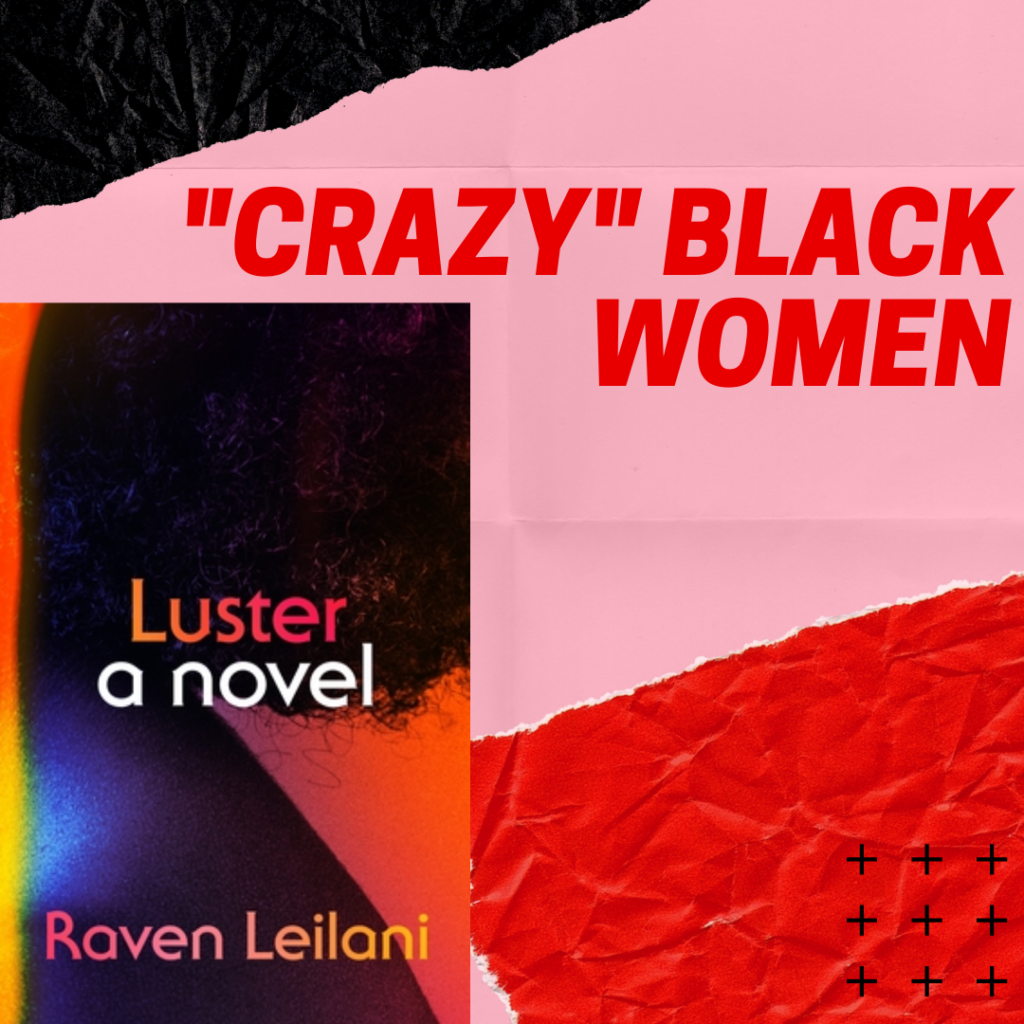At first glance in Luster by Raven Leilani, Edie is a crazy Black woman, one of those where Black men and white women would easily call a “crazy bitch”. She is fueled by sex and wrapped up entirely in her own pain. Her train of thought was erratic and non sequitur, and darkly hilarious (hella dark). Throughout the novel she struggles with ordinary human relationships and finds herself entangled in very interesting ones. If any book character I have read was a Scorpio, she would definitely be the one.
I have read many negative reviews about the book, but it is one many people talked about, and continue to talk about. The writing seemed aimless and the plot was very loose. But I loved this style. It worked for Edie; it amplified her craziness.
A quick aside about my use of the word crazy. I never use this word to describe someone who is managing difficulties around mental health. I use it here as a descriptor of human behavior that society deems out of the ordinary for typical human interactions (e.g. stalking, murder, etc.) and never attribute it to a mental health diagnosis.
The problem seems to be Black women
I have recently seen so many books about messy and crazy Black women. I’m thinking Patsy, Queenie, and New People (a little older but I recently read in the last few years). I’ve seen many reviews about these Black women that condemn them. Reviewers dismiss the entire story because they don’t like or understand the main character. I have seen more negative reviews for these stories about Black women than I have seen for stories about other messy and crazy people.
People love stories about white men who kill people, yet they can also find them deeply complex and romantic. There is a whole genre of thrillers about crazy white women. The problem doesn’t seem to be crazy and messy protagonists; it seems to be Black women. These negative reviews come from white people who express how they don’t “get it” and Black women who want to distance themselves from this portrayal of them.
I, however, am loving this movement of messy and crazy Black women protagonists. They are a reminder that being a woman, especially a Black woman, is not a monolithic experience. Just because they are not morally perfect nor fit neatly in the tired tropes used to portray Black women, doesn’t mean their stories aren’t worth telling.
Blamed for trauma
Most of the time these Black women have experienced trauma. Survivors of trauma don’t all have Hallmark movie lives. They act out. They hurt people. They make mistakes and hurt themselves. They are the ones that society never protects and blames them for the trauma they have experienced.
Edie has definitely experienced trauma in her life. She has had many losses and has experienced so much neglect in her childhood. Her actions in the book, although not justified, are reasonable if you frame them within the context of that trauma. She was also relatively young, and Black women are oftentimes matured in detrimental ways. She was making the same mistakes as other early 20-somethings make, except she lacked a social safety net to support her and was more self-reflective about her choices.
Not about the plot
Edie was a Black woman on the margins of the margins. This book was not about the plot for me; it wasn’t about linking points and events in sequential order to tell an overarching story. For me, it was the sum of smaller stories of what it’s like living on the fringes of society. I got to see through Edie’s eyes her experience of injustice and oppression. I enjoyed hearing her commentary of the world.
You don’t have to understand Edie to enjoy the book, you don’t even have to like her. The point of Edie and lots of other crazy and unlikeable Black women protagonists is to challenge the same expectations society has about Black women. Black women should not have to fit in a neat, little box to be accepted in society. Their existence alone makes them worthy of experiencing humanity.


